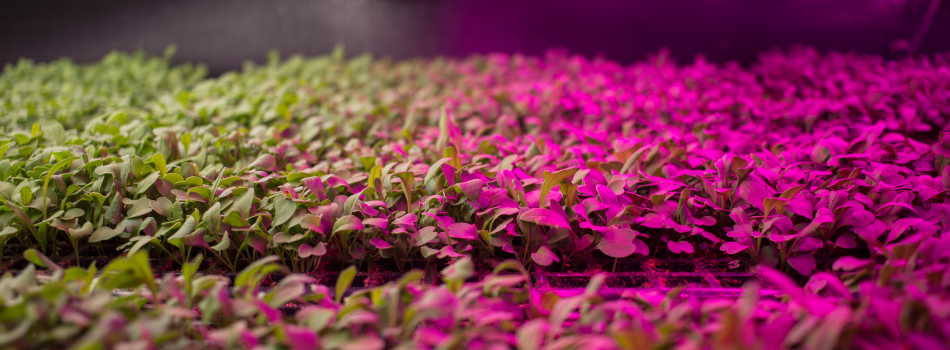By 2050, the world's population is projected to grow to over 10 billion people. A burgeoning global middle class looking to add more meat into their diet, combined with the growing stresses to arable land and water due to climate change, will test our ability to feed this growing population like never before.
A host of solutions are on deck: tackling food waste, making traditional agriculture more efficient through precision farming and shifting to alternative forms of protein, among other options. Another potential solution involves building up instead of out through vertical farming. This could allow us to grow our food in climate-controlled, vertical environments close to population centres.
Since 2011, the Halifax-area company TruLeaf has been developing a proprietary indoor vertical farming technology which allows the firm to grow leafy green vegetables in a more sustainable manner. By combining hydroponic technology, recycled water, LED lighting and artificial intelligence, the company is able to cut down on the heavy transportation and environmental footprint of the current food system.
Using its TruLeaf Smart Plant System®, the company grows plants in trays in several layers stacked vertically that use significantly less land than traditional agriculture. Water is collected and reused to reduce water usage by 95%. The company is able to speed up the growth cycle to 16-18 days without the use of any pesticides, compared to 35-40 days when grown outdoors. And by growing the crops nearer to cities, TruLeaf reduces transportation emissions and preserves more of the nutritional content of the greens.
Boosted by early government seed funding from the Atlantic Canada Opportunities Agency and Innovacorp, TruLeaf is rapidly expanding out its business under its GoodLeaf brand. Its first farm was established in Truro, Nova Scotia, supplying greens for the Maritime market. It opened up a fully-automated state-of-the-art farm in Guelph, Ontario earlier this year, and has plans to expand into Montreal and the Prairies in the near future.
In 2018, fellow Maritime company McCain Foods became a minority investor in anticipation of a period of “exponential growth” for TruLeaf. For a Nova Scotia start-up looking to eventually become the largest indoor farm operator in North America, it could be the perfect opportunity to rapidly develop new products and get them to market.
For a hungry and warming planet, it seems that the vertical farming industry has nowhere to go… but up.
Read up on more Ecopreneur stories here, and follow @smartprosperity to join the #CanadasEcopreneurs conversation.



